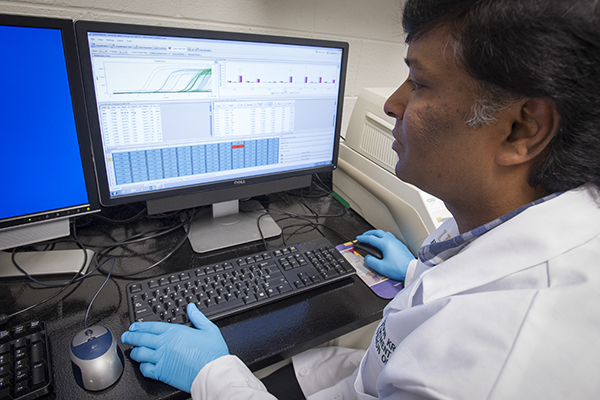
USF kidney expert Dr. Alfonso Campos guides the family and health care team, from diagnosis to transplant to success.
Twenty weeks into her pregnancy with her second child, Melissa Ranieri was told there was a problem with her baby and that he might not make it past birth.
The news hit hard. Their baby boy Evan had very small kidneys and would likely not be able to survive on his own. She and her husband Paul carried the weight every day, turning to family for support, turning to the internet for research and similar stories.
And turning to USF pediatricians for deeper answers and a second opinion.
That second opinion came from Alfonso Campos, MD, associate professor of pediatric nephrology and an expert on kidneys in children, especially in babies.
“The first diagnosis turned our family upside down,” Melissa said. “But Dr. Campos told us Evan had a much better chance of survival than that.”
“Otherwise healthy, Evan still had small kidneys and they weren’t working well,” Dr. Campos said. “In many newborns, the problem subsides as they grow – they grow out of it. But not for Evan. He wouldn’t require dialysis right away, and he would need medications to address function, such as acid in the blood, and a careful diet. But the prognosis was renal failure.”
Although it was better news for the Ranieris that Evan was strong enough to get by for a while, the reality remained that Evan’s kidneys would not support him long before he would need a transplant. Decisions were made, like delivering at Tampa General because they “needed to be at the best hospital,” and the comprehensive kidney care provided there, Melissa said.
“Dr. Campos and his team made sure we were prepared for what was to come,” Melissa said.
“They even preemptively showed us the NICU (neonatal intensive care unit) to acclimate us to the environment so we would be ready,” Paul added.
***
Evan was born in March 2011 at Tampa General surrounded by a team of highly trained pediatric surgeons, nephrologists, NICU physicians and nurses, and others working together, standing ready to react to whatever Evan presented.
“Evan was only hours old when doctors confirmed our worse fears,” Paul said. “His kidneys were failing.”
The newborn was immediately put in the Muma NICU at Tampa General Hospital and the conversation turned to next steps, the first being finding a kidney donor.
***
Evan runs from room to room of the Ranieri’s new house in Riverview. Having just moved in a few weeks earlier, several rooms remain empty as the family settles in. Evan, who is nearly 4 years old, is making use of the open space to chase his big sister Avery, who is 7.
The bonds are strong in this family, but none as literal as those between Melissa and Evan – mother and child.
About 18 months after being born – after spending several months in the NICU before coming home for the first time, followed by nearly daily trips to TGH for dialysis – Evan’s kidneys totally failed. He went from having dialysis to get by to needing a kidney transplant in order to live.
And it was one of his mother’s own kidneys that saved him.
***
In May 2013, the renal transplant team transplanted a kidney from Melissa into Evan. Probably the most obvious question is how does an adult kidney fit into a toddler?
“Kidneys are amazing – once in Evan, the kidney actually shrank a bit and will grow as Evan grows, growing back into an adult size kidney,” Dr. Campos said. “And for Melissa, as an organ donor, she lost a kidney so her remaining kidney grew to accommodate.”

Sister Avery and Dr. Campos visit Evan while he recuperates at Tampa General. Photo courtesy of the Ranieris.
The Ranieris are eager to say that it was finding the right team that has helped their family the most.
“We really are so grateful for the medical staff at both Tampa General and USF,” Paul said. “Everyone in the PICU, the NICU, the doctors and nurses at every level, were all so welcoming and positive. It was a very good experience, considering the circumstances.”

Mother and son. Two kidney transplant patients at Tampa General, one giving, the other receiving. Photo courtesy of the Ranieris.

Signs of recovery. Evan races the halls at TGH following his transplant surgery. Photo courtesy of the Ranieris.
“The standards are different with TGH and USF,” Melissa said. “We knew with Evan we would need to have a higher level of care. Even if we had lived in Miami, we would have come to Tampa General and to the doctors at USF for their pediatric transplant expertise.”
Now, at 26 months post-surgery, and having just celebrated his fourth birthday, Evan’s future is bright and he’s expected to have a healthy childhood. There will be rules with his diet and there will be no contact sports. He will take anti-rejection medications for the rest of his life, although the fear of his body rejecting his single kidney is constant. Melissa and Paul know that Evan will likely need additional transplants later in his life, repeating what they’ve told themselves since he was born: a transplant is not a cure.
***
Like many families, the Ranieris shared their story across social media. In addition to keeping friends and family posted on Evan’s progress, the social media presence helped meet a bigger goal: build awareness of the need for organ donation. This crusade to urge others of the importance of organ donation built a lot of momentum and Evan’s Facebook page has more than 2,000 friends. Although the surgeries are in the past, the family is still active with campaigns and donating their time to push the endless need for donors.
“We want Evan to feel empowered,” Melissa said. “It’s his journey, his story. We hope his story will influence others of kidney diseases and organ transplantation. We are strong advocates, active in Life Link and the National Kidney Foundation, as well as with the team at TGH.”
“You might automatically think of older populations when you mention transplants,” Paul said. “But the reality is children need them, too. They have their whole life in front of them.”
And that includes Evan. He will likely need additional kidneys in his lifetime.
“I’m not a match, and Melissa can’t donate again,” Paul said. “He could need one to two more kidneys across his lifetime.”
Dr. Campos is optimistic for improved medications, maybe even an effective artificial kidney if Evan does need another kidney.
“Currently, there are several kinds of antirejection medications and today’s medications have much better results than those in the past,” Dr. Campos said. “But there could be new meds that come along for him. I’m optimistic they’ll find even better ones, or develop an artificial kidney that the immune system won’t reject.”
But the bottom line right now, Dr. Campos said, is to fill out that donor card.
“We need more organ donors and they must be willing, able, and a good match,” he said.
Melissa gives an even more straight forward answer.
“If you donate, eight people’s lives will be saved,” she said.
Then, hinting to her single kidney, she smiled and said, “I’ll only be able to save seven and a half.”
Visit Evans ORGANizers page on Facebook.
Photography by Eric Younghans, USF Health Office of Communications



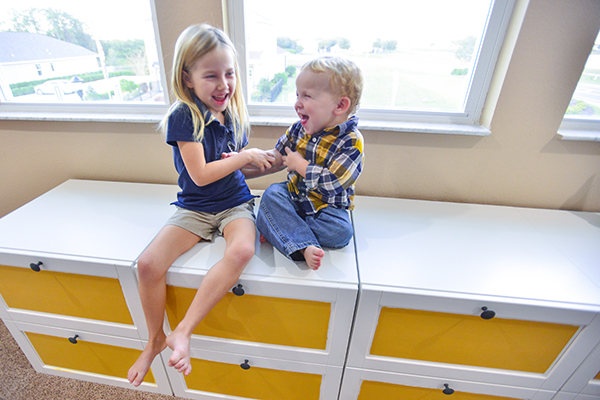


































































 The $2.2 million investigator-initiated clinical trial will compare a new rapid-onset anticoagulant with warfarin, the standard medical treatment for Afib.
The $2.2 million investigator-initiated clinical trial will compare a new rapid-onset anticoagulant with warfarin, the standard medical treatment for Afib.






 Faced with an unknown condition that was leaving their newborn twin babies unable to breathe on their own, a family turns to USF Health, because “we needed help from top experts in uncommon conditions.”
Faced with an unknown condition that was leaving their newborn twin babies unable to breathe on their own, a family turns to USF Health, because “we needed help from top experts in uncommon conditions.”

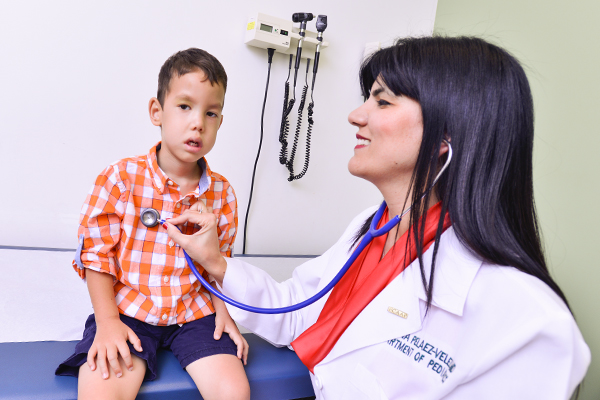


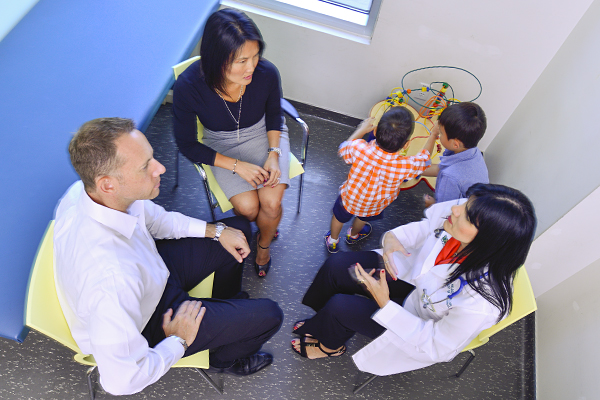
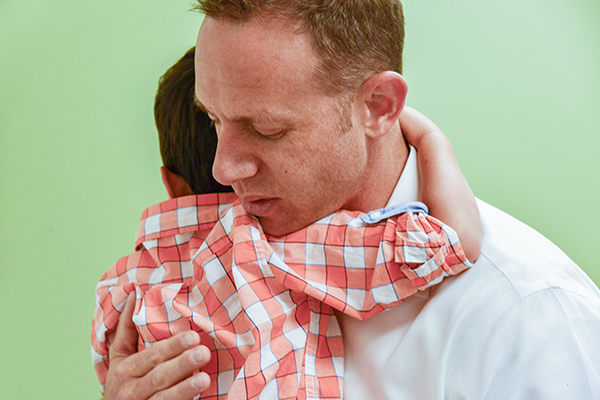
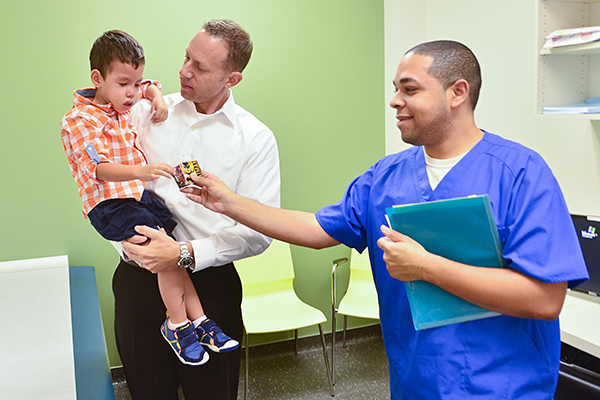
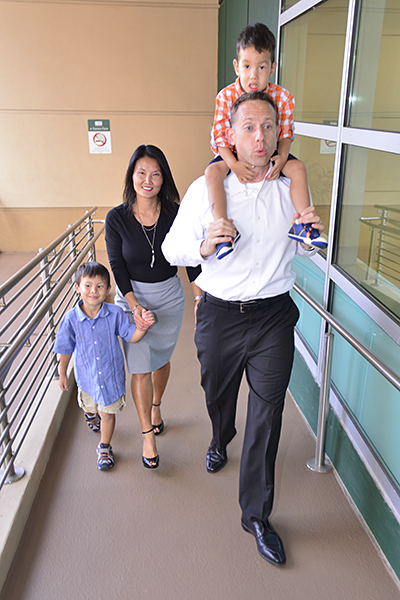











![tgh_exterior_day_RSS]](http://hscweb3.hsc.usf.edu/wp-content/uploads/2014/07/tgh_exterior_day_RSS.jpg)




